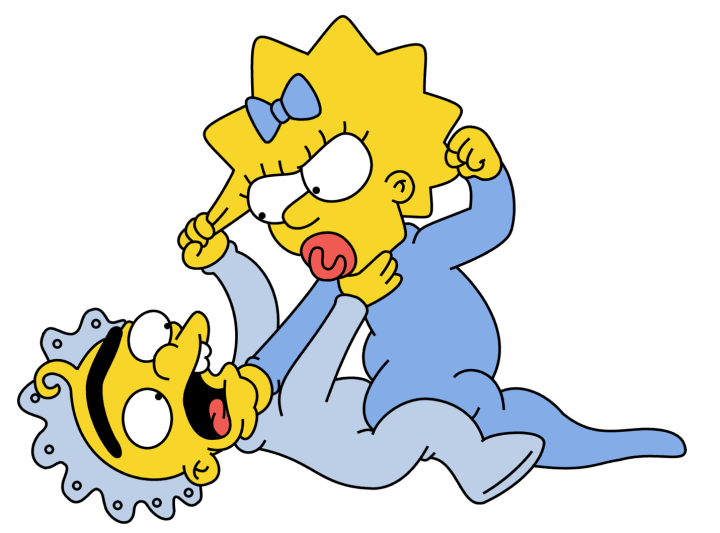It’s still good, it’s still good!
By Angela Espinoza, Arts Editor
A couple weeks back, I wrote a piece leading up to the latest season of The Simpsons. While the piece discussed a number of things, my main point was that the show desperately needed to be cancelled. No North American series should ever get to the point of “season 24.” “Season 10” is an achievement many excellent shows should consider a milestone, have, and not too long after either call it quits or continue on for only so much longer. “Season 24” on the other hand should be the name of a horror movie, because by that point the subject can only be a grotesque monster.
Now, all of that said, I stand by it that The Simpsons is one of the greatest television shows ever made. Everything from creative referencing to inventing colloquialisms was achieved by this series in almost no time at all. Whether it’s Homer’s infamous “D’oh” or the underrated “meh” by Bart, when a show can make changes to a society’s language—before the use of the Internet—that’s pretty damn impressive.
While the last 12 or so seasons haven’t been the best (or even good in many cases), there still occasionally manages to be the few couple episodes that stick out as being a pleasant watch. More importantly though, the damage the last dozen seasons have done cannot undo all the awesome that came before it.
Homer, Marge, Bart, Lisa, even Maggie to an extent—everyone recognizes those names, you don’t even have to add Simpson. But save for Lisa, those are pretty uncommon names to begin with; well how about The Sea Captain, Bumblebee Man, Doctor Nick, and so many others? All those names stick out because every one of these characters is in some way just endless amounts of fun.
Part of what makes the characters work is that, call it brilliant writing, the chemistry between everyone in the Simpsons family and their close friends is incredible to sit back, watch, and then think about. They’re a dysfunctional family, but when the time calls for it, they’re also noble and understanding. For example, there’s an episode in one of the aforementioned bad bunch of seasons called “Goo Goo Gai Pan,” in which Homer goes out of his way to pose as the husband of Selma Bouvier, one of Marge’s sisters that Homer loathes, all so she can adopt a baby from China. Just that concept takes the already well-established chemistry between Homer and Marge’s sisters and manages to make it endearing… even if it is in the midst of jumping the shark.
Then of course there are the many, many outstanding jokes, none of which I’ll ever be able to pick out as an ultimate favourite. It’s these jokes that created the colloquialisms, that taught writers how to reference, and that years later, people like me still use on a daily basis, to prove no other point than that they’re still funny.
Much of the humour is the basis for how the show became popular in the first place. But while its popularity was ultimately the show’s undoing, there will always be the vast amounts of people that understood what the show was trying to achieve, and weren’t just laughing because—unlike the modern writers and audience seem to think—‘Homer say something funny.’
I’ll admit the same reason I can watch episodes over and over again is due in part to the same nostalgia I share with some very piss-poor video games from my childhood and bands from my teen years. But even if one took away the fact that The Simpsons was something most of us grew up with, it would still manage to creep back into our lives. The Simpsons may no longer be the best, but like a moist pig flying through the air, it’s still great.
[hr]
Everybody loves ‘The Simpsons’—except me
By Idrian Burgos, Contributor
By and large, everyone on this planet seems to love The Simpsons. Everyone susceptible to the death ray of those two one-eyed, salivating, green aliens loves the hilarious foolishness of Homer, the mischievous rascality of Bart, the good-natured normalness of Marge, the rational sense of Lisa, the adorable and mystifying innocence of Maggie, and the overall funniness and calamity of the citizens of Springfield. Stretching from the beaches of Rio to the modern and historic avenues of Berlin, The Simpsons has become a global phenomenon. Anyone who has lived outside of a cave appears to like the painful comedy and meaningful satire of the show. Proven by its longevity—record-holder for longest-running animated comedy show—and continued popularity, The Simpsons has managed to capture the backing and devotion of everybody the world over.
It seems to have missed me.
For the most part, I dislike The Simpsons. My reasons for disliking it are perhaps your reasons for liking it. The “D’oh-ness” and pratfalls of the bald-headed Simpson, amusing to many, is nothing but unfunny stupidity to me. Not stupidity of the hilarious type, but the type of stupidity where ending the life of the one suffering from it is an act of compassion. In fact, some in the IMDB forums have complained of “Homer Stupidson.” If only I could add even a dose of intelligence or sanity in him, I say to myself.
The spike-headed kid arguably ranks equal with his unfortunately lobotomized father in the list of all-time hate-worthy Simpsons characters. To be played around by the school bully when not doing anything wrong, yet manage to get away with a mischievous act to Lisa is unfair and unjust. Penalties are given for wrong acts and not for simply being in the wrong place at the wrong time. One would love to stuff tennis balls in his mouth—with an additional dynamite stick for good measure—after he’s finished chuckling after an impish act.
Other character criticisms are not so much about the characters specifically, but with their overall depiction. Almost everybody suffers from some form of idiocy or defect, with occasional bouts of intelligence or wisdom when the script or director demands it. No one is perfect in The Simpsons (the daughter Simpson may be a relative exception), which—while it might be realistic—only makes one hope for a dose of sense in the show, as the degree of infallibility for the characters ranges to the unrealistically infallible.
The combination of stupidity and sense in The Simpsons is more painful than thoughtful. When the stupidity of one character is used to deliver something meaningful—say Homer delivers a thoughtful line in his own funny way—or when a character’s foolishness is suspended for a moment of insight (I remember you, Ralph), the end product usually produces a preference to have the lines delivered without humour altogether; or if you are less caring, to have that piece of truth register as plain garbage. The fault in this case may be assigned not to the characters, but to the writers of the lines; their brand of humour and choice of words causes an irritation so dreadful, the only antidote to it is to shut down the whole enterprise.
It may be that the combination of the show’s humour, cartoon colour, style, and voice characterization is the one to blame for such a harsh response. Everyone else on Earth may like them, but I sure don’t.


